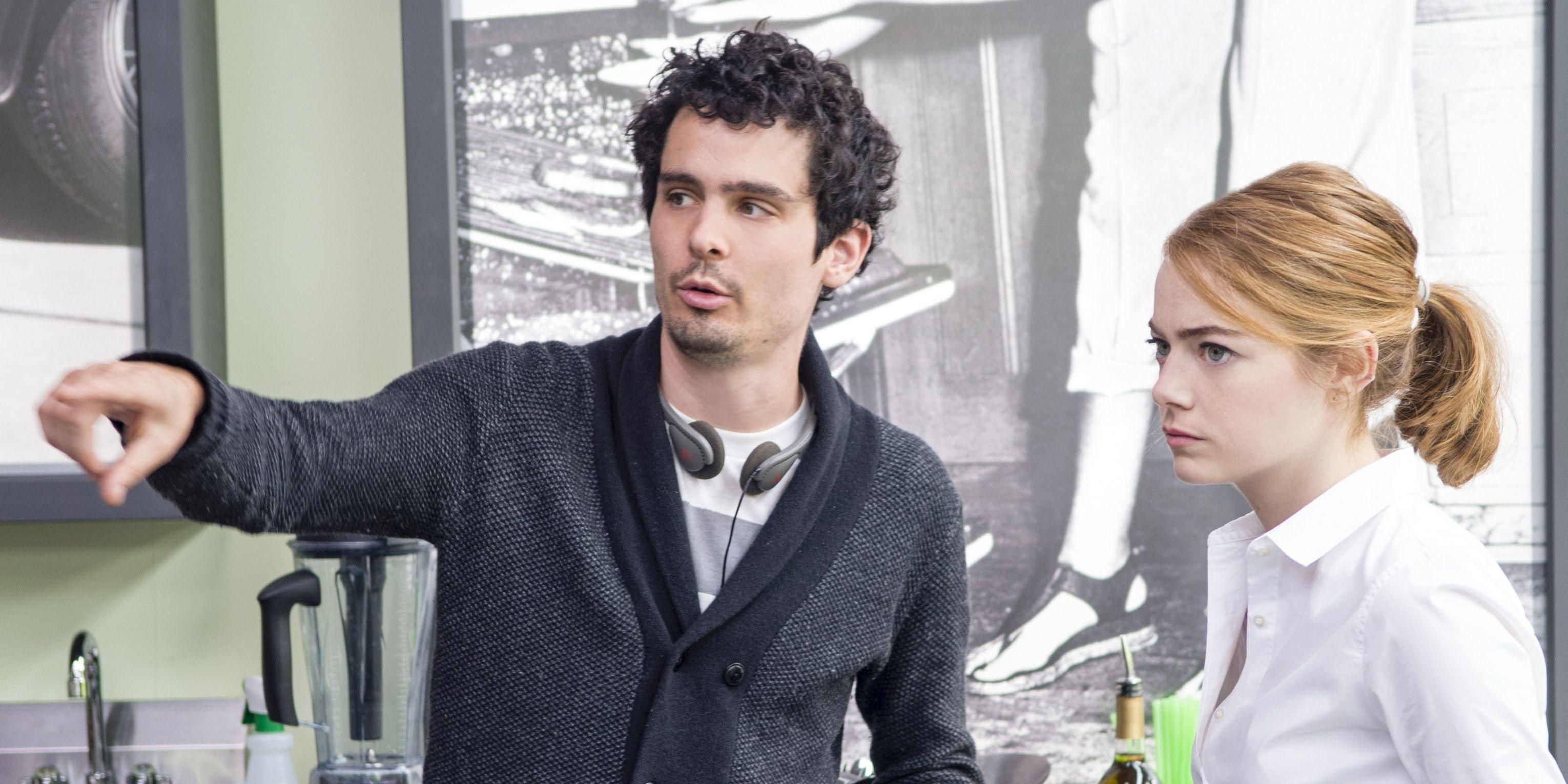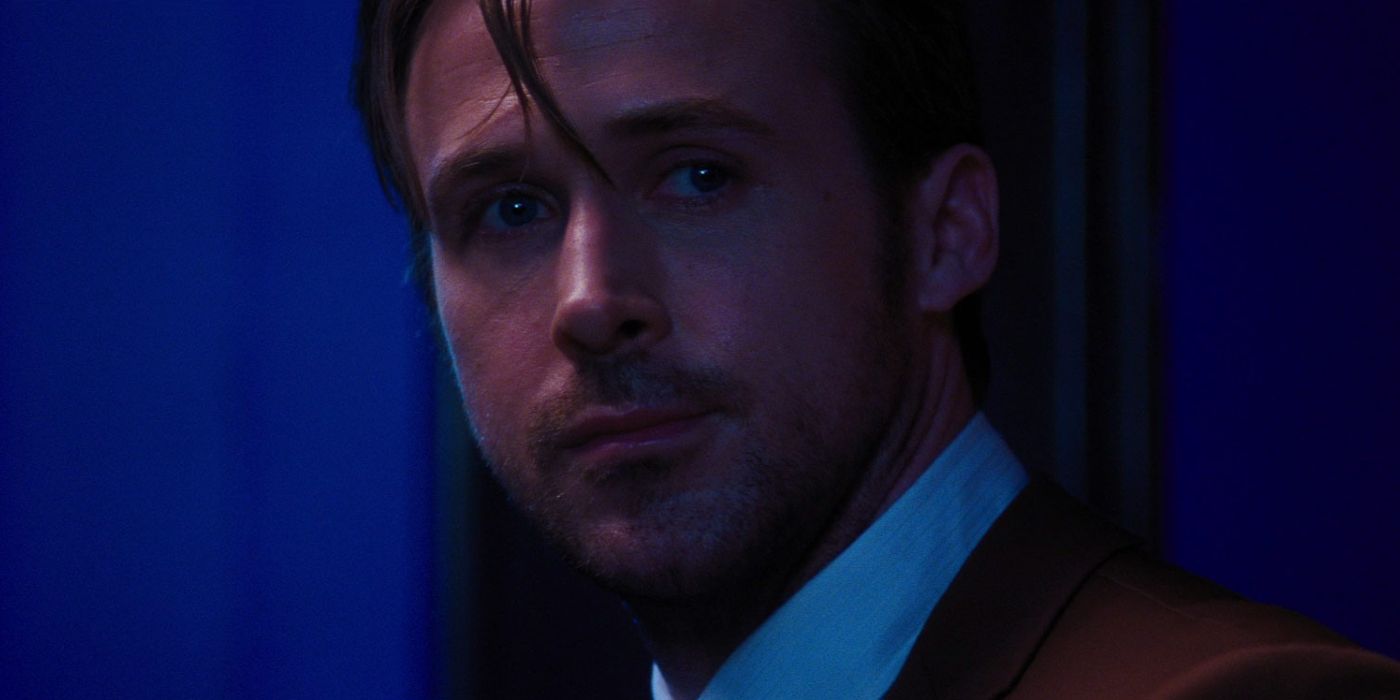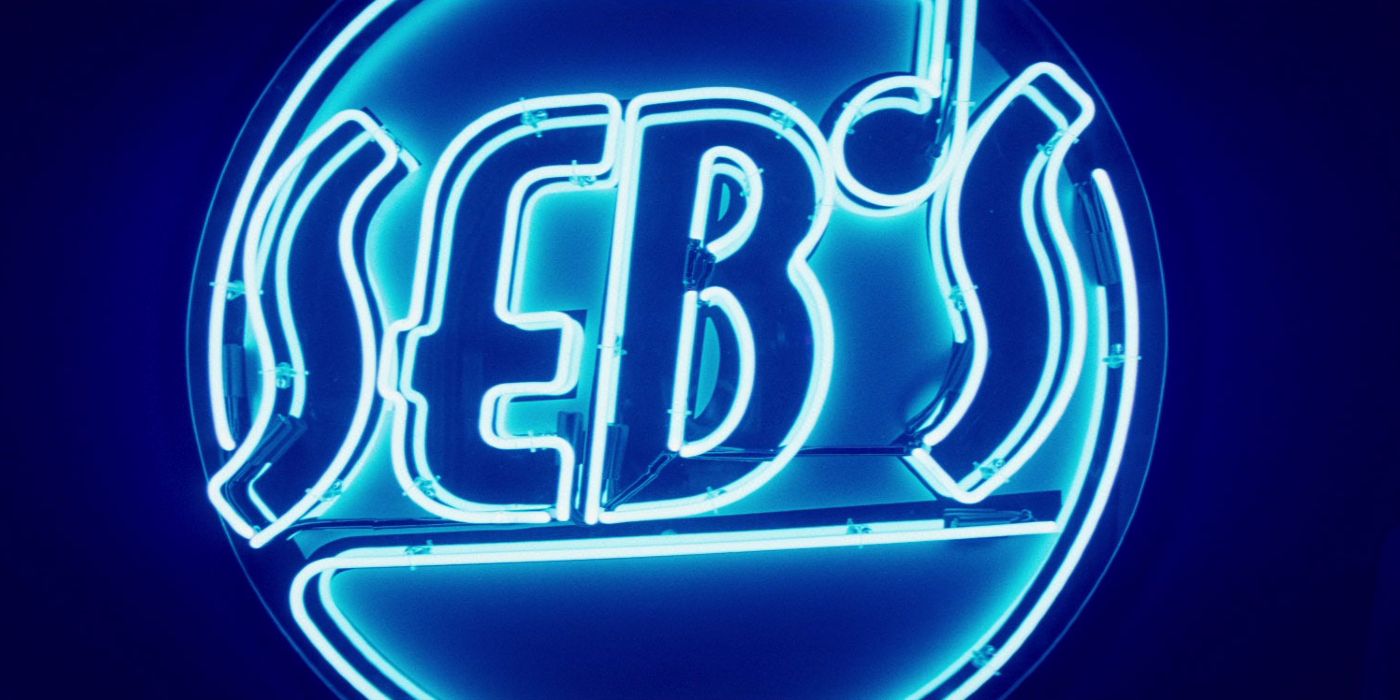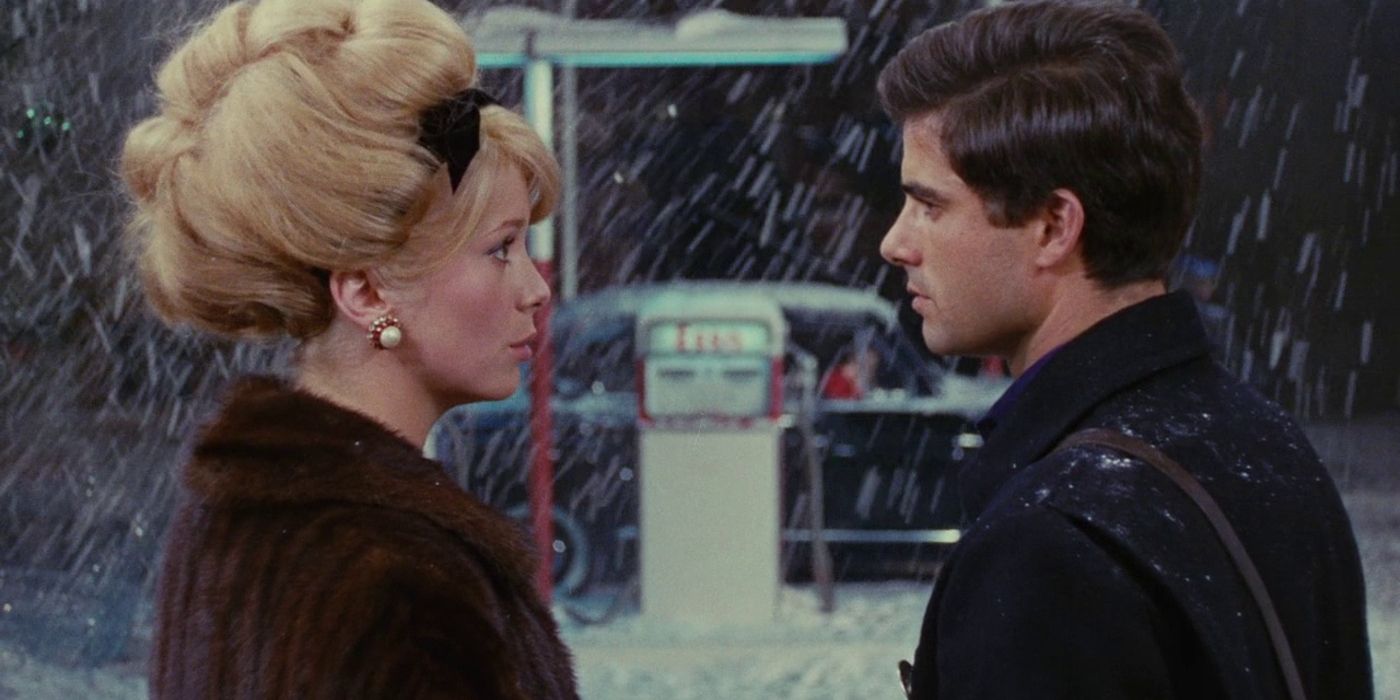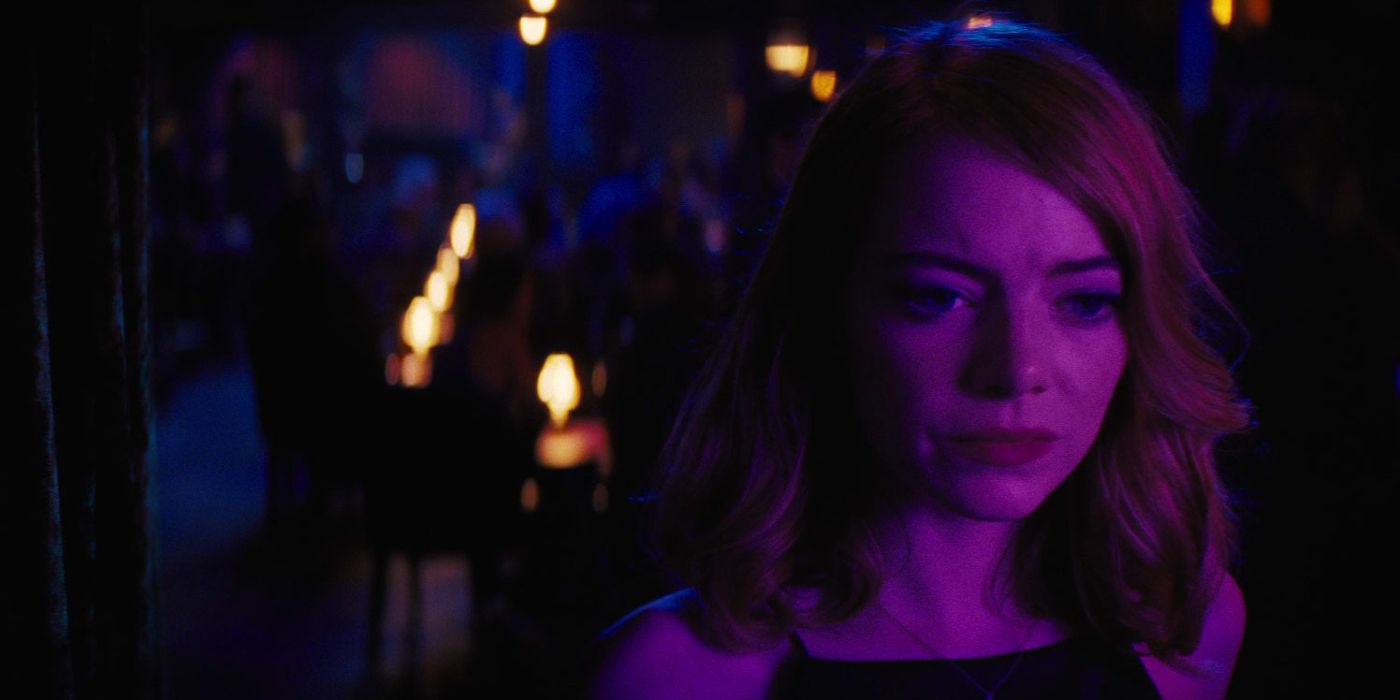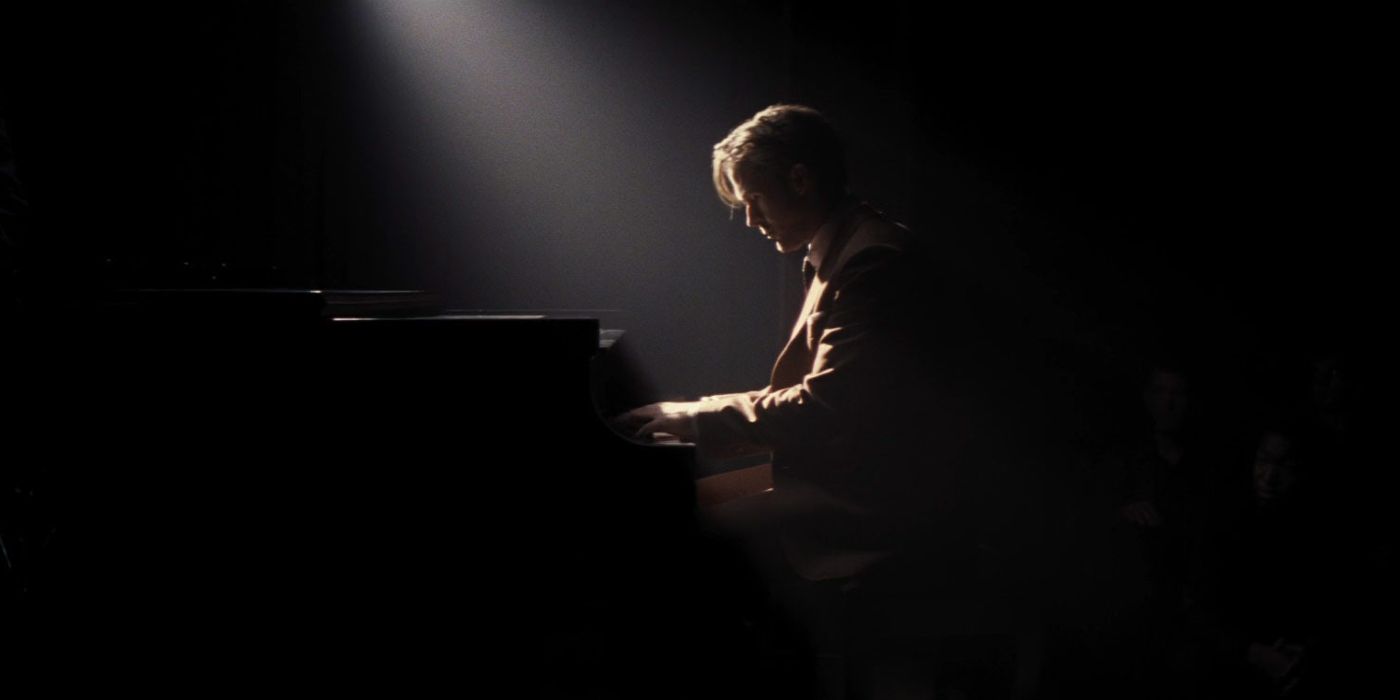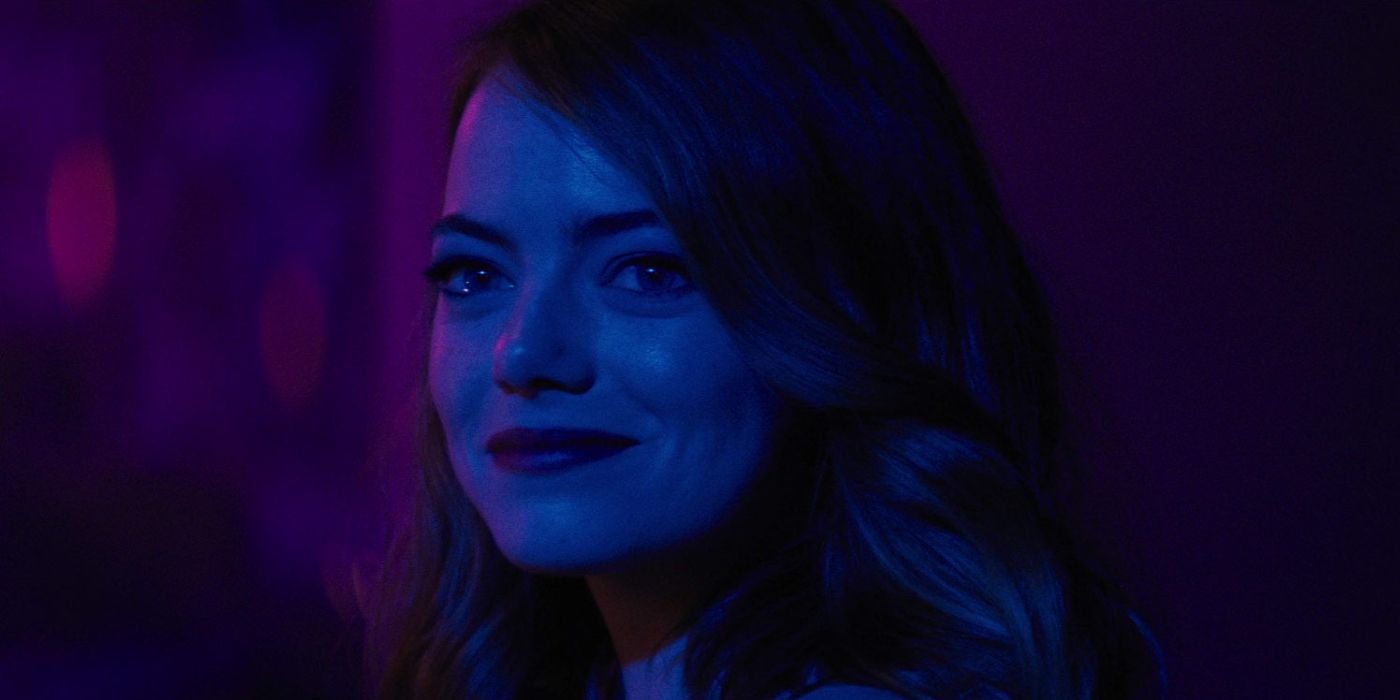Summary
-
La La Land
‘s ending subverts romantic expectations and emphasizes the importance of pursuing one’s dreams, even if it comes at the expense of a relationship. - Mia and Sebastian broke up because they both wanted to pursue their dreams, showing that sometimes sacrifices must be made for personal fulfillment.
- The dream sequence in the ending highlights what could have been for the couple and underscores the choices they made, leaving a lasting impression of their love and growth.
The La La Land ending doesn’t give the audience the romantic conclusion audiences might have wanted, but it’s one that fits the movie’s core themes. Damien Chazelle’s award-winning film is a musical love story about Mia (Emma Stone) and Seb (Ryan Gosling) as the couple meet, sing, dance, and romance their way through the City of Stars, seemingly setting up a happy ending much like those of the films La La Land is so influenced by. However, the ending takes things in an unexpected direction for a romance musical as its two lead characters don’t end up together.
Though La La Land pays homage to many musicals that came before, its ending doesn’t so much subvert the expectations of those kinds of stories as it does actively use them against the audience. Sebastian and Mia achieve their dreams — he opens his jazz club and she becomes a famous actress — but at the cost of their relationship. The final moments bring them back together, both in reality and in a dream sequence, but it is a fleeting reunion before they both come to the shared understanding that their time together has passed.
Why Mia & Sebastian Don’t Get Back Together In La La Land’s Ending
Mia And Sebastian Find Happiness Apart Despite The Love They Share
Although viewers see Mia and Sebastian break up after he misses her play, the movie still teases the possibility of reconciliation until the ending of La La Land. After Mia’s successful audition lands her an acting job in Paris, it appears as though Mia and Seb aren’t even truly broken up, nor are they back together. Instead, their relationship exists in limbo, with them acknowledging how much they love each other but seeing that their respective paths might draw them apart.
In another twist on the old tropes, Mia and Sebastian broke up because they wanted the same thing: to pursue their dreams. Despite how much they loved one another, they owed it to themselves to follow their passions and see where they might lead, even if the cost was their relationship. It’s the same reason why Mia and Seb don’t get back together in the La La Land ending: each has found their own place in life, with help from the other, but they now exist independently.
How Damien Chazelle Explained La La Land’s Ending
Chazelle Highlighted The Love Lasting Beyond The Relationship
Speaking to CNN, director Damien Chazelle gave his view on why Mia and Seb don’t end up together in the ending of La La Land, that it was always the plan for the movie — there was no version where they got their happily ever after. He explained that he finds stories where lovers don’t end up romantically together to be the greatest, saying:
“I think there’s a reason why most of the greatest love stories in history don’t end with happily ever after. To me, if you’re telling a story about love, love has to be bigger than the characters… [The ending gives] you that sense that even if the relationship itself might be over in practical terms, the love is not over. The love lasts, and I think that’s just a beautiful kind of thing.”
La La Land Ending’s Dream Sequence Explained
The Surreal Ending Highlights Mia & Sebastian’s Sacrifices
La La Land‘s ending isn’t just based on reality, of course, but also delivers a fantastical scene that shows what Mia and Seb’s happy ending together would have looked like. It whisks viewers off on an alt-journey through the biggest moments of the movie: their first meeting becomes a passionate kiss and every wrong turn in their romance instead goes right. It’s a poignant reflection on what could have been for the couple, giving audiences the kind of conclusion that would typically be expected of a Golden Age musical without trading off on the movie’s key themes.
The most important differences in La La Land‘s dream sequence, aside from the fact it has them together at the end, comes down to two crucial moments. Firstly, Seb turns down the offer from Keith (John Legend) to join his band, and secondly, Mia’s play is a roaring success (with Seb in attendance).
Without the former, Seb doesn’t get to open his own jazz bar in Los Angeles. Playing at a club in Paris instead, Mia seemingly achieves greater success (though how much is left unclear, without seeing the same poster Seb walks by earlier). However, there is a lingering question of whether they could have been happy without Seb pursuing his dream as well.
That is, ultimately, why this is all just fantasy. La La Land‘s dream sequence explains the movie’s choices. There wasn’t an option for both characters to have it all, at least not at the point in time when they met and fell in love. Perhaps, as it imagines, it really could be different now, but that opportunity has gone. The movie shows how there must be compromises and sacrifices in life, whether in terms of relationships or work, the pursuit of the arts, or matters of the heart.
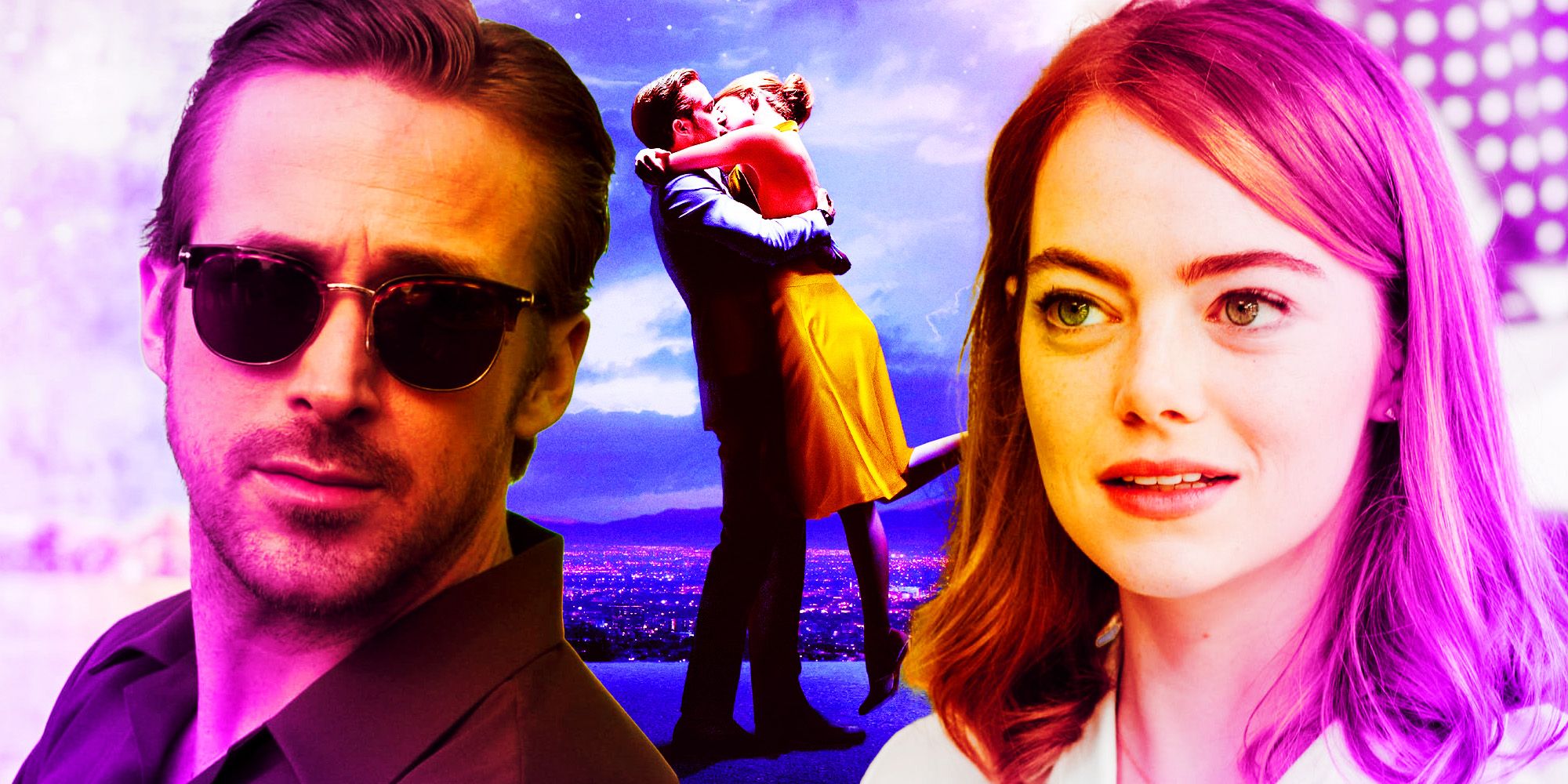
Related
La La Land: The 20 Most Emotional Quotes, Ranked
Damien Chazelle’s La La Land was a romantic musical starring Ryan Gosling and Emma Stone. The movie is full of emotional quotes like these.
Mia’s Smile & Seb’s Final Song & Nod In La La Land’s Ending Explained
The Intimate Moment Ends Their Relationship On A Happy Note
As Seb notices Mia in his club toward the end of La La Land, he begins playing the opening notes of his and Mia’s theme song, before the movie shifts to the dream sequence. When it picks back up in the real world, Seb quietly, almost mournfully, plays the final note as Mia sadly smiles at him. In turn, Sebastian nods back. With these moments bookending the dream sequence in La La Land‘s ending, it hammers home the reality of Seb and Mia’s relationship.
Seb playing the song is an acknowledgment and reminder of their love, of how much their relationship meant, and how much it still means. Mia’s smile and Seb’s nod complete it: they’re no longer together, but they’ll always love each other in some way, be grateful for the time they had, and be proud of how far the other has come.
La La Land Ending Detail Highlights The Importance Of Seb & Mia’s Relationship
The Name Of Seb’s Club Cements The Importance They Had To Each Other
One key detail in La La Land‘s ending comes with the name of Sebastian’s club. The Seb’s name and logo both came from Mia, who gave Seb a design for his club earlier in the movie. It’s a subtle touch that shows just how much their lives impacted one another.
They may not be together, but much like Seb wouldn’t be the same without Mia, there would also be no Seb’s without her. Her encouragement for him to pursue his dream, and vice versa, is what led to this, and it’s a nice touch to see that honored in Seb’s jazz club.
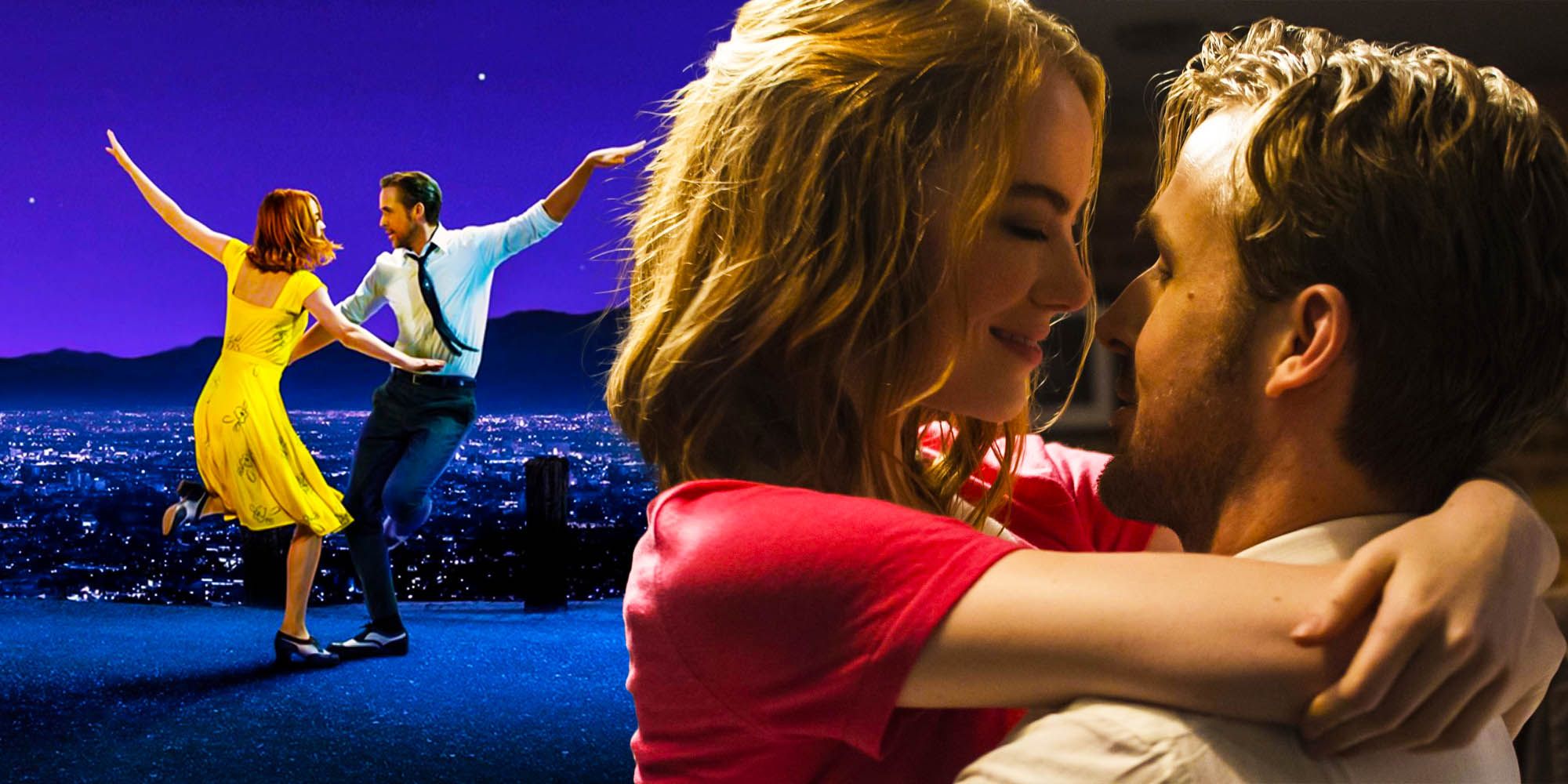
Related
La La Land Soundtrack Guide: Every Song In The Musical
La La Land’s soundtrack does not only make Mia and Sebastian’s journey richer, but it also tells a story on its own. Here is every song included.
The Key Movies That Inspired La La Land’s Ending
Damien Chazelle Drew From Several Films
Damien Chazelle’s movies wear their influences on their sleeves, most overtly drawing from 1950s musicals such as Singing In The Rain and the Best Picture-winning musicalAn American In Paris, but there are two key films that stand out when it comes to how La La Land ends. One is The Umbrellas of Cherbourg, Jacques Demy’s 1964 musical romance.
Aside from the music, it’s also stylistically similar in its use of color and is broken up into different chapters, giving it a similar narrative structure. Most importantly, it has an ending that opts for bittersweet realism over a Hollywood climax, as its romantic leads having a last, poignant meeting showing how they’ve lost one another but achieved their goals.
The other key influence is 7th Heaven, a 1927 silent movie centered around married couple Chico and Diane, where the former goes off to war and dies. The wife refuses to believe it, clinging to dreams that he’s alive. The movie’s ending sees Chico return home. Without an explanation of how he’s alive, they kiss, and the screen fades to black. 7th Heaven allows viewers to choose their own interpretation about whether it is a dream, and La La Land‘s ending offers something similar with its own dream sequence.
While there is debate in 7th Heaven about whether Chico is alive or if Diane was just dreaming it, Chazelle also suggests both could be true (viaVulture):
“The reason those two things can coexist is because of how deeply this woman loves him. The emotion was so deep and profound that the laws of time and reality and physics stop existing.”
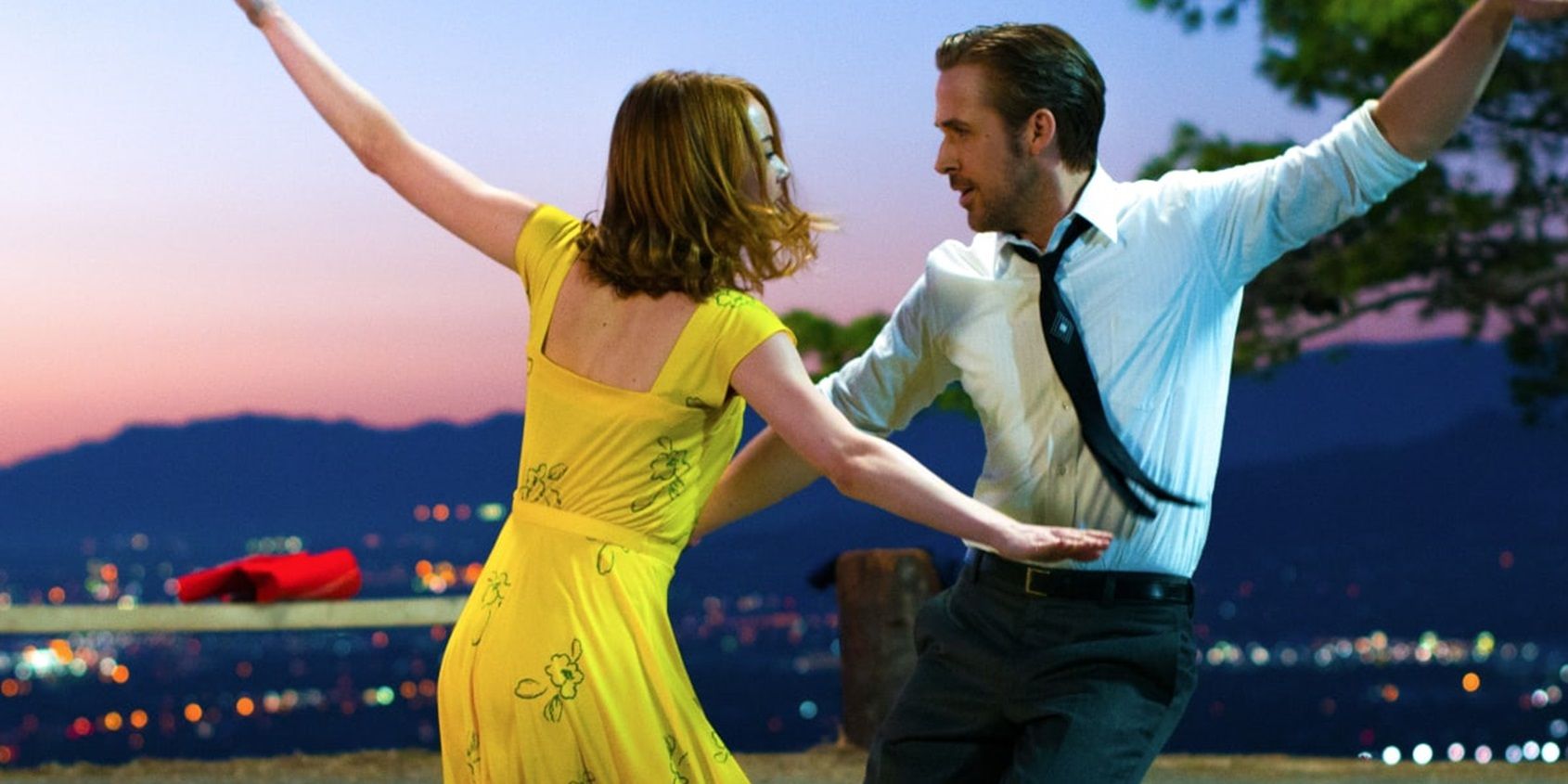
Related
La La Land Musical: Everything We Know About The Upcoming Broadway Show
Damien Chazelle’s La La Land is one of the most exciting and engaging musicals of the 2010s, and now, a Broadway musical adaptation is in development.
Is La La Land’s Ending Happy Or Sad?
Did Mia And Seb Miss Out On Happiness Or Find It Elsewhere?
La La Land‘s ending, for those who do invest in Mia and Seb’s romance, is utterly heartbreaking. The film makes it easy to root for them to achieve everything they want — to be together and to realize their dreams — and learning that it wasn’t possible is a crushing moment. It cleverly uses expectations against audiences, because the idea of them being together is so prevalent in these kinds of movies, and when a musical begins with such a bright, colorful, and sunny opening number, delivering a bittersweet movie ending makes it all the harder to take.
However, it can also be argued that La La Land has a happy ending. They may not be together, but Seb and Mia are successful and, more importantly, fulfilled. The movie may not go the way anyone expects, and yet looking back to that opening, both characters are in far better places when it ends compared to how it began. They’ve loved and lost, but they’ve also gained so much along the way, with bright futures ahead for both of them.
The Real Meaning Of La La Land’s Ending
The Themes Reflect Some Of Damien Chazelle’s Other Work
Damien Chazelle’s movies have a clear throughline, showing the pursuit of one’s dream to the point of obsession, and the human cost that comes with it. This was shown physically, mentally, and emotionally in both the stunning conclusion to Whiplash and also First Man, both of which more intensely focused on the sacrifice that was required.
The La La Land ending has a more delicate touch since it’s built around romance. Still, the theme remains the same: that committing oneself so completely to an endeavor (in particular an artistic one) is worth it, no matter what it takes, if it’s what the heart and soul are truly passionate about.
It’s fitting that
La La Land
‘s ending includes a wistful sequence that sees its main characters think of what could have been, and reinforces why they didn’t end up together.
Chazelle’s first movie, Guy and Madeline on a Park Bench, also has some similarities to La La Land. Guy and Madeline plays out as a very rough, black-and-white version of what his later movie would be, complete with a jazz musician lead character and a doomed romance. Like Seb and Mia, Guy and Madeline also break up.
However, Guy and Madeline’s ending sees them contemplating whether to get back together or if it’s better to move on from the past. La La Land‘s ending finds a third option: that not all relationships are made to last, but the most important ones leave a lasting impression that shapes lives and should be fondly remembered.
It’s fitting that La La Land‘s ending includes a wistful sequence that sees its main characters think of what could have been, and reinforces why they didn’t end up together. They could’ve chosen their romance, but to them, at that time, it would’ve been the bigger sacrifice. They may regret it on some level, but it all worked out.
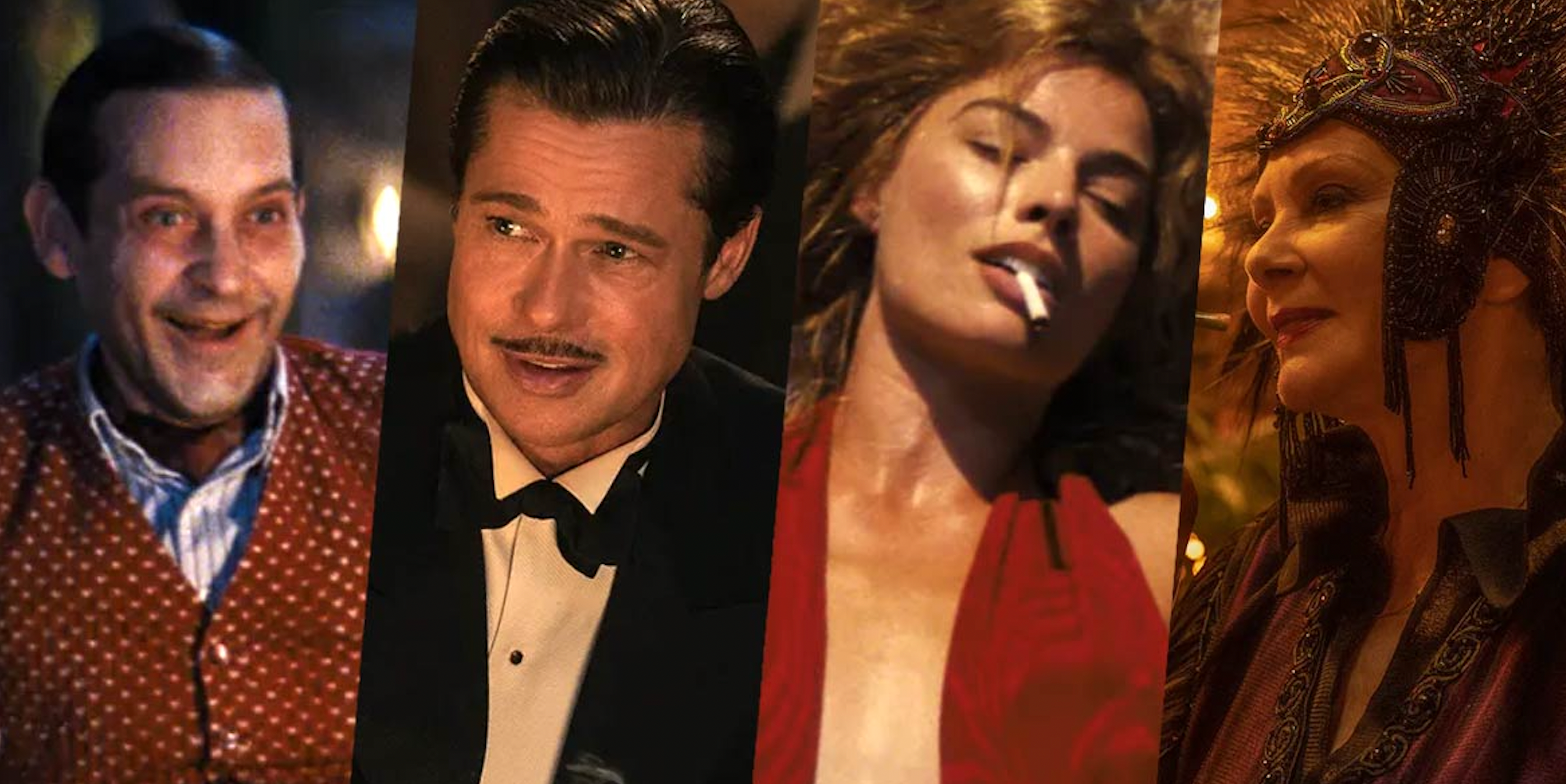
Related
10 Great Actors Who Have Collaborated With Damien Chazelle
Damien Chazelle is known to bring out the best in actors. Over the years, the director has worked with a ton of brilliant talent.
Why La La Land’s Ending Is So Perfect
The Bold Ending May Have Cemented La La Land As A Modern Masterpiece
With excellent reviews and Damien Chazelle’s Oscar win for Best Director, the love for La La Land as a great movie is evident. However, it ascends to become something truly special in its ending. The whole film plays it loose like jazz, but it’s La La Land‘s ending that takes the biggest swing. It’s the movie’s boldest choice by far, opting against the far easier conclusion of having Mia and Seb get back together. However, with that, it’s a more powerful statement.
It’s realism over wish-fulfillment — not all relationships can work out, most people will find contentment rather than perfection, and life is, like jazz, unpredictable. There’s a rush that comes with that and yet it offers a dose of the latter too in how the two leads do realize their dreams, both at the cost of but also thanks to their romance. Seb and Mia being together would’ve been a fine, feel-good ending that sent audiences home happy. Instead, La La Land leaves the audience with a more complicated feeling, but that emotional impact lasts far longer.
Emma Stone Found The La La Land Ending Bittersweet
Stone Suggested Similarities With People Wishing For Others’ “Better Lives”
For lead actress Emma Stone, the La La Land ending isn’t necessarily sad, rather, it’s a reflection of harsh reality(viaElle):
“I find it bittersweet, but also realistic. It doesn’t all come true for anyone ever. It’s not exactly how you pictured it,”
Stone also discussed how the ending of La La Land relates to social media’s effect on modern society’s skewed perception of life.
“That’s why it makes me so crazy to look at social media. When you see people like, ‘This is the best life ever! I couldn’t be happier,’ you’re like, ‘Shut up, that is not true.’ Not everything comes together in the best way ever, every day. It just doesn’t. Even when your dream you set out for comes true, it’s not always perfect…. That’s not the reality of life.”
How The La La Land Ending Compares To Damien Chazelle’s Other Movies
Damien Chazelle’s Movies:
|
Movie |
Rotten Tomatoes Score |
|---|---|
|
Whiplash (2014) |
94% |
|
La La Land (2016) |
91% |
|
First Man (2018) |
87% |
|
Babylon (2022) |
57% |
Again, while Damien Chazelle’s movies are incredibly varied so far, it is possible to see a solid through-line in all of them that deals with the main character’s pursuit of big goals. La La Land‘s ending brings its story of Seb and Mia’s pursuit of their dreams to a close with the realization that they needed to make the sacrifice of their relationship in order to get to that place they had been chasing. It’s fascinating to see how the endings of his other movies have also commented on this theme.
First Man details the real-life journey Neil Armstrong took in preparing to be the first man to walk on the moon. In the end, it is revealed that the dangerous mission that caused him to put his life in danger, be absent from his family life, and focus only on this goal was largely in the pursuit of helping him to let go of his grief over the loss of his daughter.
Babylon is Chazelle’s epic depiction of Old Hollywood and all of its debauchery. The movie is a criticism of the industry and some of the personalities within it in many ways, with the story ultimately focusing on the character of Manny, who leaves Hollywood behind when his acting dreams are no longer worth the toxic nature of that world. However, the movie ends with Manny now settled into a quieter life as he goes to the theater to watch Singin’ in the Rain (which becomes a montage of a century’s worth of movies) and cries.
Among Chazelle’s movies, it is Whiplash‘s ending that offers the best competition to La La Land for the most impactful final scene. The movie follows aspiring jazz drummer Andrew, who is pushed to the breaking point by his abusive teacher, Fletcher. However, in the final scene, Andrew shows his true talents, which is met with approval from Fletcher. The movie leaves it up to the audience whether this is a win for Andrew or just a way for the toxic relationship to continue.
Each of these movies makes a different comment on the characters’ pursuit of their goals. First Man touches on the personal motivations of some of the most important achievements; Babylon suggests someone can find beauty and worth in a world that they did not ultimately fit into; Whiplash questions whether pushing someone to achieve their goals is always worthwhile. Finally, La La Land speaks to the people who help each other achieve what they want, even if they are not there to share it in the end.
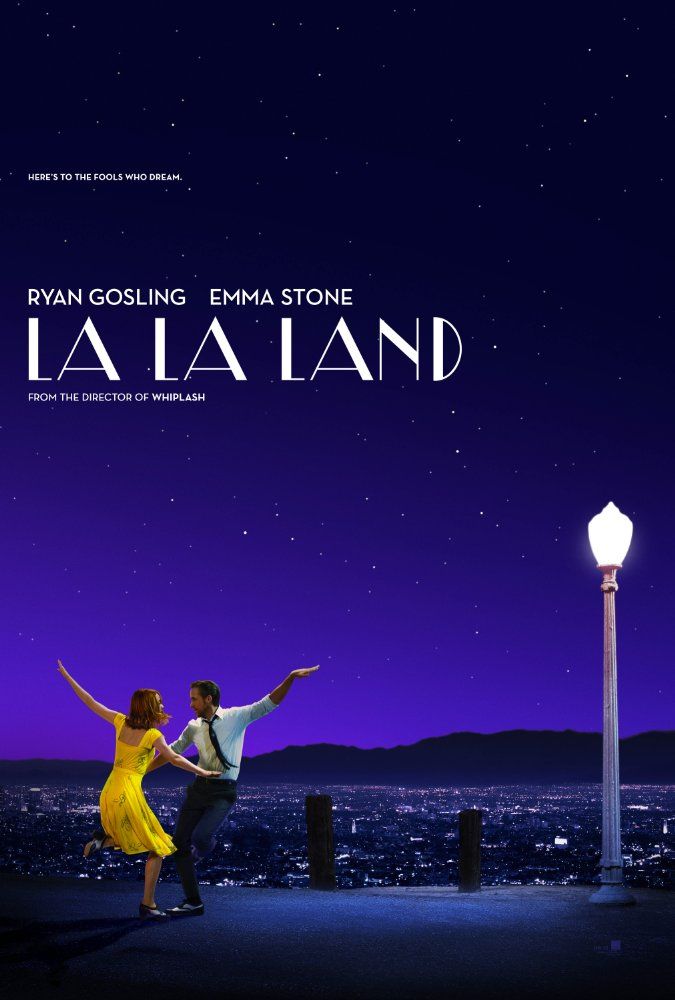
La La Land
Written and directed by Damien Chazzelle, the romantic musical La La Land tells the story of Seb Wilder (Ryan Gosling) and Mia Dolan (Emma Stone), a jazz musician and an aspiring actress pursuing their respective dreams in Los Angeles. The pair meet and fall in love, sharing their passions and hopes with one another as they become closer. J.K. Simmons, John Legend, Rosemarie DeWitt, and Finn Wittrock appear in supporting roles.
- Release Date
- December 9, 2016
- Director
- Damien Chazelle
- Cast
- Hemky Madera , meagen fay , J. K. Simmons , Sonoya Mizuno , Rosemarie DeWitt , John Legend , Ryan Gosling , Finn Wittrock , Ashley Caple , Josh Pence , Emma Stone , Jason Fuchs
- Runtime
- 128 Minutes

